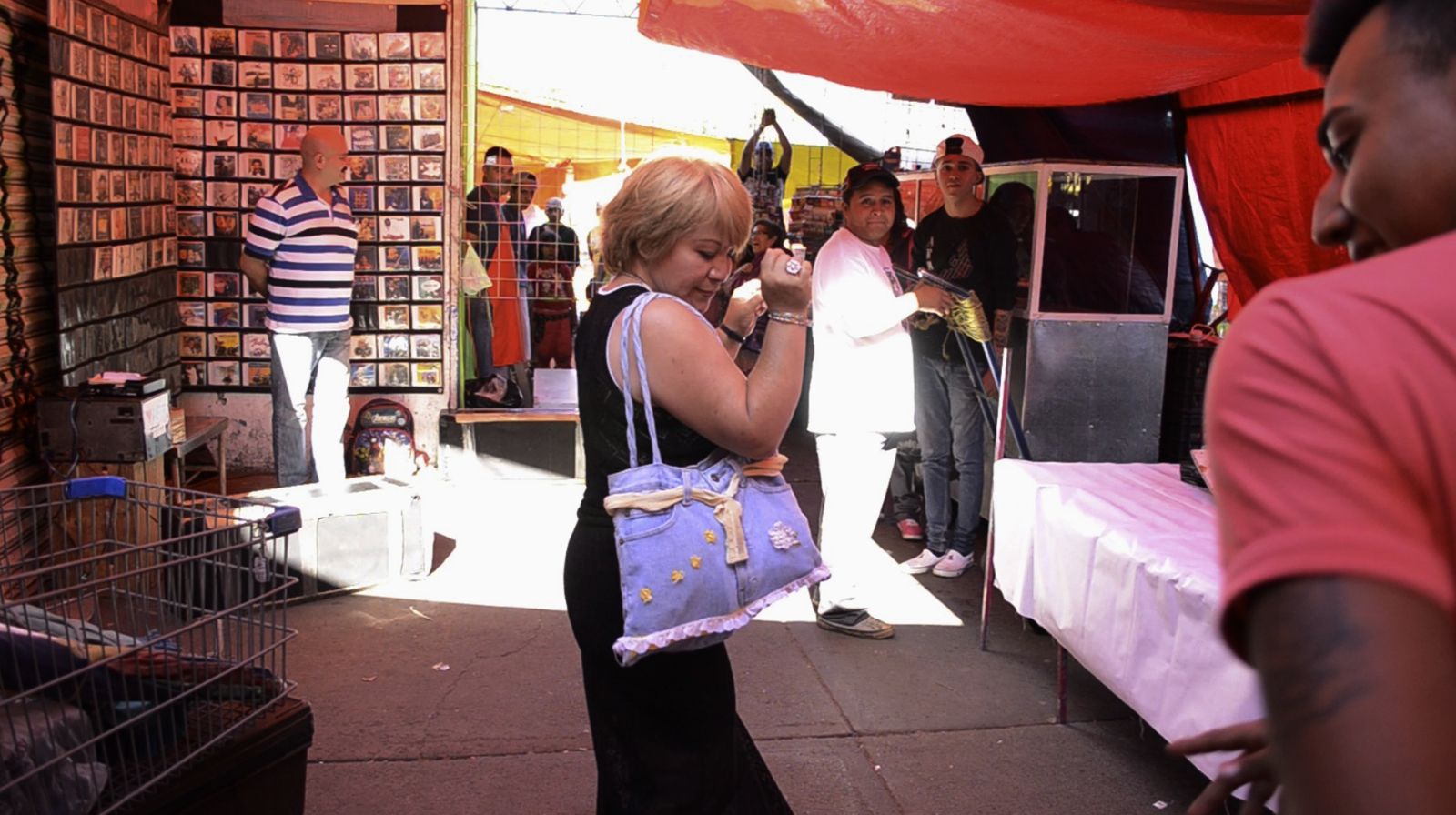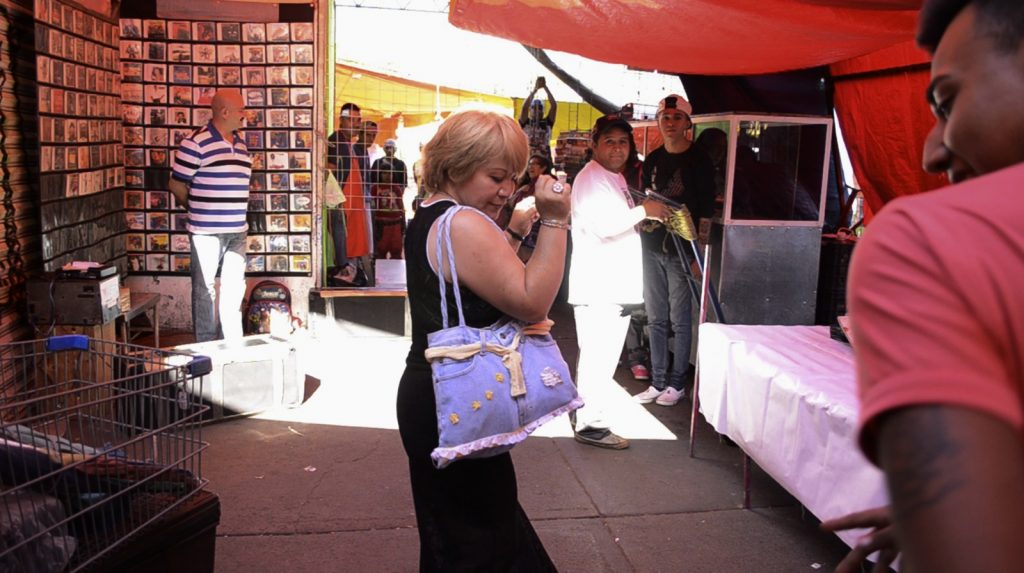There is nothing quite like a Mexican sonidero. Equal parts DJ and MC, these sonideros are the heart of a bustling music scene throughout Mexico. Playing tropical music (mostly cumbia), they are the ones responsible for scoring dance block parties that have been going on for decades. This is the world director Joyce García immerses you in throughout her documentary Yo no soy guapo. Focused on the Mexico City barrio of Tepito (which has long been decried as one of CDMX’s most dangerous neighborhoods), García’s cameras focus on the joy and community building sonideros bring to audiences. There’s furious dancing with crazy moves like something out of a tropical ball, brightly colored attire full of logos of each sonidero, and a real zeal for enjoying one’s self.
Yo no soy guapo is intent on showing the brighter side of Tepito and the long-running tradition of sonideros. With firsthand accounts led by Lupita “La Cigarrita,” a ball of energy who’s all too eager to sing on the bus, dance on the street, and give history lessons on the spot about her treasured sonideros, this is a music doc that soon turns political. First there’s those scenes where we learn certain sonideros work with nonprofits to host dance block parties in nearby prisons. And then you start learning about the way local authorities are moving to curtail sonideros’ ability to set up their large sound systems on the streets under the guise of avoiding the violence that has greeted these large gatherings in the past.
The rifts between sonideros and local police make up the bulk of the latter third of García’s movie. With hand-held cameras, the doc places us next to Lupita as she tries to reason with cops who are shutting down her event (part of the festivities celebrating la Virgen de la Merced). The reason? They rather not risk the violent crowds (and presumably, the drugs) they’ll be hosting. It puts into stark contrast how these disenfranchised communities are at the mercy of a city government that would criminalize sonideros rather than work with them to better serve the local community. Speaking at Los Cabos International Film Festival, García made it clear that these are long-running traditions being squashed by gentrifying forces that would rather do away with the culture that’s sustained these communities in the first place.
As one of the members of Sonido Duende, one of the subjects of the film, further put it, “Authorities just don’t get it. You open a space for people just to dance. And those who show up are there just to dance. They don’t go to get high. You know, these other neighborhoods — Zona Rosa, Polanco — what kinds of things are happening over there? Because drugs are everywhere. Police know where it is. But they don’t do much about it. They’d rather blame third parties rather than do their job. Their job should be, rather than sending 200 police officers to raid us, they should send us 20 to guard the event. But they’d rather hassle the sonideros than those who are stealing, those who are breaking the law.”
Yo no soy guapo screened as part of Los Cabos International Film Festival .




